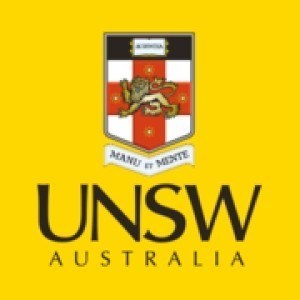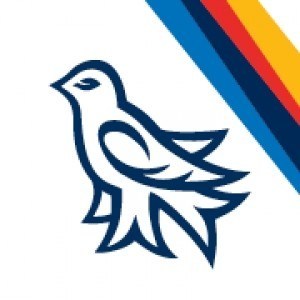Photos of university / #cambridgeuniversity
Program Title: Researching Practice at the University of Cambridge
Description:
The Researching Practice program at the University of Cambridge offers a comprehensive and rigorous pathway for those seeking to develop advanced research skills within their chosen field of study. Designed for both early-stage researchers and experienced academics, the program provides an immersive environment that fosters critical thinking, methodological expertise, and innovative inquiry. Participants engage in a variety of modules and workshops that focus on research design, data collection and analysis, academic writing, and the dissemination of findings. The curriculum emphasizes an interdisciplinary approach, encouraging students to draw connections across different domains and to challenge existing paradigms. Throughout the program, students will have access to world-class resources, including extensive library collections, cutting-edge laboratories, and dedicated research centers. They will also benefit from supervision by leading faculty members whose expertise spans a wide range of disciplines. The program includes opportunities for collaboration with other researchers and institutions, as well as participation in seminars, conferences, and research meetings that promote scholarly networking and the exchange of ideas. Graduates of the Researching Practice program will leave equipped with the practical skills, theoretical knowledge, and critical perspectives necessary to pursue independent research projects, contribute to academic debates, or implement evidence-based practices in professional settings. With a strong emphasis on ethical research and responsible scholarship, the program aims to prepare participants to make meaningful contributions to their field and to society at large. Whether aiming to enhance academic credentials, develop research consultancy skills, or innovate within industry, students will find the Researching Practice program at Cambridge a transformative educational experience that lays a solid foundation for their future research endeavors.
The Researching Practice MEd is offered as a blended learning route. This means that the route will be offered online via a Virtual Learning Environment (VLE). You will therefore take part in teaching sessions via Moodle VLE (held on either a Tuesday or Thursday between 5 - 7pm you will be asked to choose your preferred day). Preparation for these teaching sessions will be via the course materials on the Researching Practice Moodle site. Weekly Faculty attendance will therefore not be necessary. You will be required to attend 5 Saturday conferences per year. The conferences will be an opportunity to develop and enhance the ideas you explore via the online component.
You will be allocated a personal supervisor and be entitled to the normal hours of supervision; but you might choose to have supervisions via email, Skype and telephone, as well as face to face.
Course Attendance
You will be required to attend five Saturday conferences each year: two in Michaelmas Term, two in Lent and one in Easter term. Confirmed conferences dates are as follows:
- Sat 23rd September 2017 - first day of attendance and induction day
- Sat 11th November 2017
- Lent term - Elective conferences. Up to two Saturday conferences depending on which elective you choose, usually scheduled in February and March. Dates for elective conferences will be confirmed at the November conference.
- Sat 2nd June 2018
You will also be part of an online learning group, with an allocated tutor who will be working with you and your group on the course materials and course online discussions on a weekly basis. These online discussions, which will reflect both course content and small research tasks which you will be asked to undertake, take place on Tuesdays/Thursdays in term times and will be held between 5-7pm. You are required to be available to take part in these.
Additionally you will have a supervisor to support you with writing your thesis. Supervisions (online and face to face) are at times arranged by negotiation between yourself and your supervisor.
IMPORTANT: This course is only open to students who have completed the Postgraduate Advanced Certificate in Educational Studies (PACES) at the Faculty of Education.
- First Academic Reference
- Second Academic Reference
- Transcript
Funding options for the Researching Practice program at the University of Cambridge typically encompass a variety of financial supports designed to assist students in covering tuition fees and living expenses. University-funded scholarships and bursaries are available for eligible applicants, often based on academic merit or financial need. These awards may include departmental scholarships, research grants, or external funding opportunities offered by government bodies, charitable organizations, or industry partners. Students are encouraged to explore the Cambridge Trust, which provides a range of funding schemes for both UK and international students. Additionally, the university collaborates with various funding agencies that support postgraduate research and professional development. Potential students can also consider applying for external scholarships such as Commonwealth Scholarships, Chevening Scholarships, or those provided by their home governments, which often extend support for research-based programs. Part-time employment opportunities within the university, such as research assistantships or administrative roles, can also supplement income while studying. Loan schemes may be available for eligible UK students through government programs like UK Student Loans or specific universities' loan facilities. International students should review the specific funding options available to them, including international scholarships and sponsorships. It is highly advisable for prospective students to consult the Cambridge Graduate Funding database and the program's official webpage for detailed guidance on application procedures, deadlines, and eligibility criteria. Early planning and thorough research into available funding sources are crucial to ensure comprehensive financial support throughout the duration of the program. The university's financial aid office provides tailored advice and support for students seeking funding, and many funding opportunities require early application submission. Overall, by combining university-funded scholarships, external grants, part-time work, and loans, students can effectively manage the costs associated with pursuing the Researching Practice program at Cambridge.
Researching Practice at the University of Cambridge is an innovative and interdisciplinary programme designed to equip students with a comprehensive understanding of research methodologies and practical skills necessary for conducting high-quality research across various disciplines. This program is tailored for students who aim to develop a deep analytical mindset, critical thinking abilities, and hands-on experience in research design, data collection, analysis, and interpretation.
The curriculum integrates theoretical coursework with practical research exercises, enabling students to apply their learning in real-world contexts. It covers core topics such as research ethics, project management, qualitative and quantitative methods, and effective communication of research findings. Throughout the programme, students engage in individual and group research projects that foster collaborative working skills and enable experiential learning.
The programme is distinctive in its emphasis on developing transferable skills, such as problem-solving, statistical analysis, and academic writing, which are highly valued across careers in academia, industry, government, and nonprofit sectors. Students also have opportunities to interact with leading researchers and practitioners through seminars, workshops, and networking events.
Researching Practice prepares students not only for pursuing advanced research degrees but also for roles that require rigorous research competencies. The programme typically involves modules delivered through a combination of lectures, seminars, and practical sessions, with assessments including coursework, presentations, and research proposals.
The duration of the course and specific entry requirements may vary, but generally, it targets recent graduates or early-career professionals seeking to strengthen their research capabilities. Support services available at the university include access to extensive libraries, research facilities, and dedicated academic advisors who guide students through their research projects.
Overall, Researching Practice represents a comprehensive pathway for individuals wishing to enhance their research skills in a supportive and resource-rich environment, preparing them for successful careers in research and beyond.









